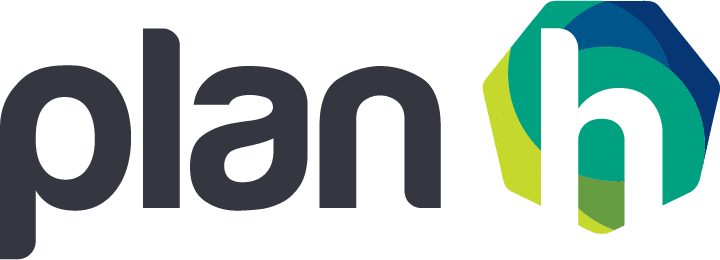Frequently Asked Questions
General FAQs
Q: If a community as applied for the last round of Social Connectedness grants are they eligibile for Physical Activity funding?
A: Yes, communities can submit an application to both calls for proposals. However, depending on the volume of applications, communities may not receive funding for both areas.
Q: Can an applicant apply for more than one activity?
A: Yes, local governments may submit multiple, separate applications for separate activities. For example, if you wish to fund three activities, you must submit three separate applications. However, it is unlikely that more than one project will be funded.
Q: We have received funding from previous streams of HCCB Funding. Are we exempt from applying again?
A: Previous grant recipients can apply, however a final report for the earlier activities must be submitted before applying for an additional grant. Applicants must also demonstrate how the new activities differ from and/or build on the work completed as part of earlier activities.
Q: Is this opportunity only available for municipalities to apply or can non-profits apply independently?
A: Local governments (municipality, regional district, First Nations or Métis Chartered Community) must be the primary applicant. If you are partnering with a local government for your project, and the project meets the funding guidelines, the local government can apply on behalf of the team.
Q: Are these grants available to entrepreneurs?
A: No. Please see answer above.
Q: Will the grants be divided equally amongst the Health Authority regions?
A: Consideration will be given to geographic equity, while still giving priority to the overall quality of each application. The grants will be divided amongst the health authority regions, although, it’s not certain that each health authority region will have the same number of successful applicants.
Q: Are unincorporated communities eligible for the funds?
A: In the case of unincorporated communities, it would have to be the regional district that applies for the funding. There may be exceptions for communities that do not fall under a regional district area. In those cases, please contact us at grants@planh.ca or 250-590-8432 to confirm eligibility before applying.
Q: Will you accept multiple applications from Regional Districts?
A: Given that there are multiple Electoral Areas in a given Regional District, we are supportive of multiple applications from Regional Districts as long as the applications support different Electoral Areas. Each Electoral Area can only submit one application.
Q: Who is eligible to apply for Active Community and HCCBF grants?
A: The following organizations are eligible to apply:
- Regional Districts;
- Municipalities;
- First Nations Bands;
- First Nations Tribal Councils; and
- Métis Chartered Communities.
The following organizations are not eligible to apply for the Community Capacity Building Grant:
- Individuals;
- For-profit groups;
- School Districts;
- Hospital Foundations;
- Community Groups/Organizations; and
- Health Authorities.
BC Healthy Communities encourages partnerships and suggests that ineligible organizations contact eligible organizations to discuss working together. The focus of this fund is to support learning, leadership and partnership at a local government level in order to increase the health and well-being of B.C. citizens and communities.
Q: Can grants be used to fund consultant fees?
A: A grant can be used to fund consultant fees, however, communities must demonstrate how the consultant will engage local government and build the capacity of local government for the future.
Examples of Eligible Consultant Costs:
- The facilitation of events or workshops that build the local government capacity and partnerships.
- The delivery of a process to assist the local government in planning for health and being.
Examples of Ineligible Consultant Costs:
- The production of a report without further engagement or discussion with local government staff or council.
Q: Can the grant be used to fund partnership work that is ongoing?
A: Yes, however, applicants should show how the grant will deepen and strengthen the existing partnership work.
Q: Is it possible to meet with BC Healthy Communities Society prior to submitting an application to ensure that the application has the greatest chance of success?
While in-person meetings are not possible, communities are encouraged to contact BC Healthy Communities Society by telephone or email to discuss potential ideas prior to submitting an application. For further information, please contact grants@planh.ca or (250) 590-8432.
Active Communities FAQs
Q: Can we use this funding for capital costs?
A: The Active Communities grant program is not intended to be a capital funding program. However, minor capital expenditures for eligible activities that have a clear and definable benefit to communities and are clearly linked to planning or programming to increase physical activity opportunities at the community level will be considered for funding. Capital costs cannot exceed 40% of the total requested grant (i.e. an application for a $20,000.00 grant cannot include more than $8,000.00 in capital costs). Capital is broadly defined as ‘tangible assets’ that are required to support the planning or programming for physical activity as laid out in the proposal.
Q: What is a coaching grant?
A: A coaching grant is in-kind customized coaching support from BC Healthy Communities valued at up to $5,000. This portion of the grant is not paid out in cash, it is in the form of additional coaching support personalized to the unique needs of each group.
In order to support those communities or regions who are interested in utilizing their Active Communities grant and leveraging their project towards long-term measurable impact on physical activity, BC Healthy Communities is pleased to offer additional supports in the form of a coaching grant valued at $5,000 for three grant recipients in both Island and Interior Health regions.
Q: What is the criteria for a coaching grant?
A: To apply for a coaching grant, applicants must demonstrate:
- A multi-sector project leadership team is in place or under development;
- Desire to engage in a long term systems change process that can address the root issues of physical inactivity in the community or region;
- A commitment to work together to grow the capacity (knowledge, skills, understanding) of the collective to provide shared leadership over a longer period of time;
- Commitment to work with a coach (usually monthly calls plus up to two in-person workshops) over the period of one year.
Q: Can timelines for the Active Communities project completion dates be extended?
A: Timelines are strict with a project completion date of October 2018 and the final report due November 30, 2018, as we need to meet our fiscal year end accountabilities. We have budget limitations to consider which also restrict us from lengthening the time provided.
Q: What type of supports are needed for the multiple-municipal applications?
A: No additional supports are required but anything that could be provided with your application (ie: letters of suppport, motions from Council meetings, etc.) would help strengthen the application. Any letters of support that also detail the amount of responsibility and level of commitment the partner is providing would further strengthen the application as it would better showcase the level of partnership instead of just stating their support for what’s being proposed.
Q: In order to apply for the combined grants worth a maximum of $100,000, how many local governments/first nations bands will you need to be working in partnership with?
A: As long as there are at least 2 eligible applicants (Regional Districts, Municipalities, First Nation Bands, etc) working together, it would meet the criteria to successfully apply for the larger grant. The more partners involved won’t necessarily mean a stronger application but we are looking to strengthen collaborative relationships and therefore want to make sure each group would be highly involved in the projects being applied for.



